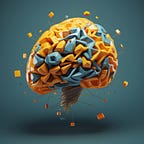AI for Everyone: Breaking Down Complex Concepts
Artificial intelligence (AI) is a rapidly advancing field that is revolutionizing various aspects of our lives, from personalized recommendations on streaming platforms to autonomous vehicles and medical diagnostics.
Understanding AI and its applications can be daunting due to its complex nature. In this article, we will simplify AI concepts and explore how AI impacts our daily lives.
What is Artificial Intelligence?
At its core, artificial intelligence refers to the ability of machines or computer systems to perform tasks that typically require human intelligence, such as problem-solving, decision-making, pattern recognition, and learning from experience. AI algorithms analyze data, identify patterns, make predictions, and adapt to changing environments, enabling machines to mimic human cognitive functions.
Types of Artificial Intelligence:
- Narrow AI (Weak AI): Narrow AI refers to AI systems that are designed to perform specific tasks within a limited domain. Examples of narrow AI applications include virtual assistants like Siri and Alexa, recommendation systems on e-commerce platforms, and image recognition algorithms.
- General AI (Strong AI): General AI, also known as strong AI, refers to AI systems with the ability to perform any intellectual task that a human can. General AI would possess human-like cognitive abilities, reasoning, and problem-solving skills across diverse domains.
- Machine Learning (ML): Machine learning is a subset of AI that focuses on developing algorithms and models that can learn from data without explicit programming. ML algorithms improve performance over time by analyzing data, identifying patterns, and making predictions or decisions based on learned patterns.
- Deep Learning: Deep learning is a subset of ML that utilizes artificial neural networks with multiple layers (deep neural networks) to extract high-level features from data. Deep learning is particularly effective in tasks such as image recognition, natural language processing, and speech recognition.
Applications of AI in Daily Life:
- Personalized Recommendations: AI algorithms power recommendation systems on streaming platforms, e-commerce websites, and social media, providing users with personalized content, product recommendations, and targeted advertisements based on their preferences and behavior.
- Healthcare: AI applications in healthcare include medical imaging analysis, disease diagnosis, treatment planning, drug discovery, and personalized medicine. AI algorithms improve diagnostic accuracy, patient outcomes, and healthcare efficiency.
- Autonomous Vehicles: AI technology enables self-driving cars and autonomous vehicles to navigate roads, detect obstacles, interpret traffic signals, and make real-time driving decisions. Autonomous vehicles have the potential to enhance road safety, reduce accidents, and improve transportation efficiency.
- Natural Language Processing (NLP): NLP algorithms process and analyze human language, enabling voice assistants, chatbots, language translation tools, sentiment analysis, and text generation. NLP technology enhances communication, information retrieval, and interaction with digital systems.
In the Final Analysis
In the final analysis, AI is a transformative technology that impacts various aspects of our daily lives, from personalized experiences to improving efficiency and decision-making across industries. Understanding AI concepts and applications can empower individuals to leverage AI technology, make informed decisions, and participate in the AI-driven digital era. As AI continues to evolve and integrate into diverse domains, it is essential to foster AI literacy and ethical AI development to harness its potential for positive impact on society.
Want the latest articles delivered straight to your inbox? Subscribe now and never miss out!
